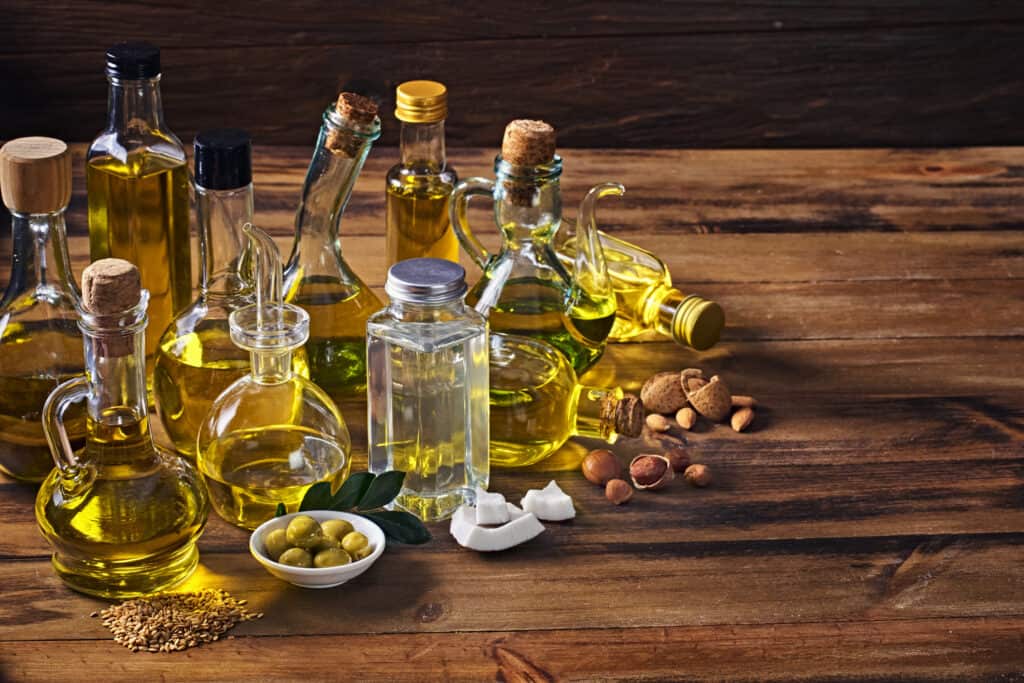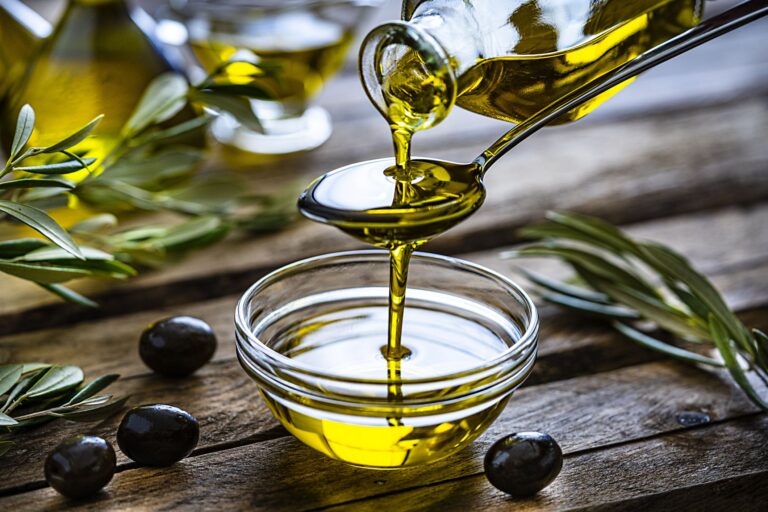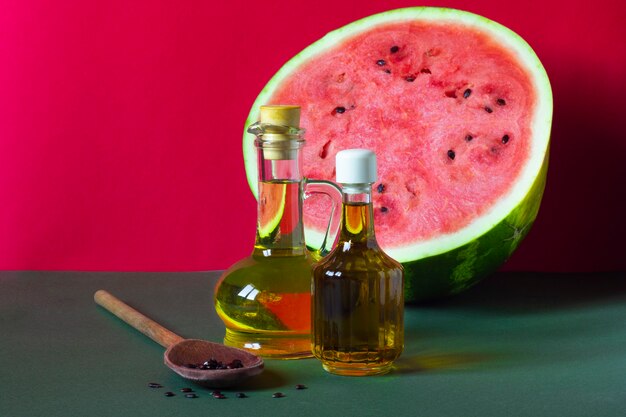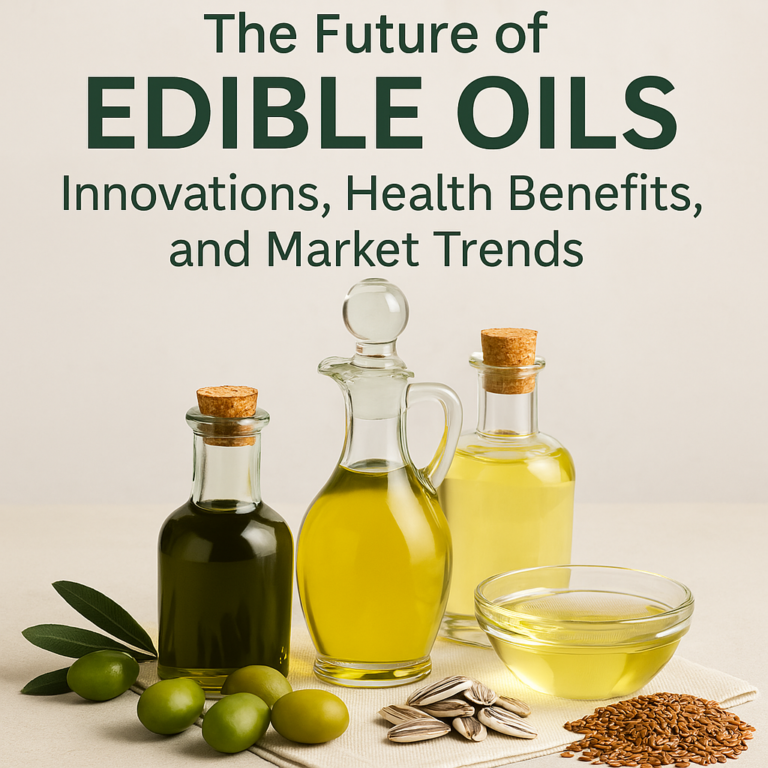
Edible oils are an essential part of cooking and food preparation around the world. From enhancing flavors to providing essential nutrients, these oils play a significant role in our daily lives. However, with so many options available, understanding the types of edible oils and their uses can be overwhelming. This guide provides a simple overview to help you make informed choices for your kitchen and health.
What Are Edible Oils?
Edible oils are plant-based, animal-based, or synthetic fats that are liquid at room temperature and suitable for consumption. They are commonly used in cooking, frying, baking, and as salad dressings. Oils vary in their composition, flavor, and nutritional benefits, making it crucial to choose the right type for your specific needs.
Types of Edible Oils
1. Vegetable Oils
Vegetable oils are derived from seeds, nuts, or fruits of plants. They are versatile and commonly used for various cooking methods.
- Examples: Sunflower oil, soybean oil, canola oil, and corn oil.
- Uses:
- Ideal for frying due to their high smoke point.
- Used in salad dressings and marinades.
- Common in processed foods like margarine and mayonnaise.
2. Olive Oil
Olive oil is extracted from olives and is renowned for its health benefits and distinct flavor.
- Types:
- Extra Virgin Olive Oil: Best for salads and light cooking.
- Virgin Olive Oil: Suitable for moderate cooking.
- Regular Olive Oil: Ideal for frying and baking.
- Uses:
- Perfect for drizzling over salads and pastas.
- Enhances the flavor of roasted vegetables.
- Common in Mediterranean cuisine.
3. Coconut Oil
Coconut oil is obtained from the kernel or meat of coconuts. It is a popular choice in tropical regions and among health enthusiasts.
- Types:
- Refined Coconut Oil: Neutral flavor, suitable for high-heat cooking.
- Virgin Coconut Oil: Strong coconut flavor, used in baking and raw recipes.
- Uses:
- Great for sautéing and frying.
- Used in baking for a tropical twist.
- Popular in skincare and haircare products.
4. Palm Oil
Palm oil is extracted from the fruit of the oil palm tree. It is widely used in commercial food production.
- Uses:
- Common in packaged snacks and baked goods.
- Suitable for deep frying due to its high smoke point.
- Used in soap and cosmetics production.
5. Sesame Oil
Sesame oil is derived from sesame seeds and has a rich, nutty flavor.
- Types:
- Light Sesame Oil: Used for frying and sautéing.
- Toasted Sesame Oil: Adds flavor to dishes but not suitable for high heat.
- Uses:
- Perfect for Asian dishes like stir-fries and noodles.
- Enhances the flavor of marinades and dips.
- Common in Middle Eastern cuisine.
6. Peanut Oil
Peanut oil, also known as groundnut oil, is popular for its neutral taste and high smoke point.
- Uses:
- Ideal for deep frying (e.g., fries and chicken).
- Common in Asian cuisines for stir-frying.
- Used in salad dressings and sauces.
7. Mustard Oil
Mustard oil is made from mustard seeds and has a strong, pungent flavor.
- Uses:
- Essential in Indian and Bangladeshi cuisines.
- Used for pickling due to its preservative properties.
- Known for its medicinal uses in massages and skin care.
8. Avocado Oil
Avocado oil is extracted from the pulp of avocados and is rich in healthy fats.
- Uses:
- Great for grilling and frying due to its high smoke point.
- Perfect for dressings and dips.
- Popular in skincare products for hydration.
9. Flaxseed Oil
Flaxseed oil, also known as linseed oil, is derived from flaxseeds and is a rich source of omega-3 fatty acids.
- Uses:
- Best for cold applications like salad dressings.
- Used as a dietary supplement.
- Not suitable for cooking due to its low smoke point.
10. Rice Bran Oil
Rice bran oil is extracted from the outer layer of rice grains and is gaining popularity for its health benefits.
- Uses:
- Ideal for frying and sautéing due to its high smoke point.
- Used in baking and salad dressings.
- Common in Asian cuisines.
How to Choose the Right Edible Oil
Considerations:
- Cooking Method:
- For frying: Choose oils with a high smoke point like vegetable oil, peanut oil, or rice bran oil.
- For dressings: Opt for oils with rich flavors like olive oil or flaxseed oil.
- Flavor:
- Use neutral oils like canola or sunflower oil for general cooking.
- For a distinct taste, select oils like sesame or mustard oil.
- Nutritional Benefits:
- Olive oil and avocado oil are rich in monounsaturated fats and are heart-healthy.
- Flaxseed oil is an excellent source of omega-3 fatty acids.
- Dietary Needs:
- For a vegan diet, choose plant-based oils like coconut or sunflower oil.
- Check for allergen information, especially for peanut or sesame oil.
Health Benefits of Edible Oils
- Provides Energy: Oils are a concentrated source of energy.
- Nutrient Absorption: Helps in the absorption of fat-soluble vitamins (A, D, E, K).
- Heart Health: Oils like olive oil and avocado oil promote cardiovascular health.
- Anti-Inflammatory Properties: Certain oils like flaxseed oil reduce inflammation.
Tips for Storing Edible Oils
- Store oils in a cool, dark place to prevent oxidation.
- Keep the lid tightly closed to maintain freshness.
- Avoid storing oils near heat sources like stoves or ovens.
Conclusion
Edible oils are indispensable in cooking and nutrition, offering a variety of flavors, uses, and health benefits. Whether you’re frying, sautéing, or preparing a salad, understanding the types of edible oils and their specific applications can help you make better culinary and health choices. Experiment with different oils to discover the ones that best suit your cooking style and taste preferences.
To delve deeper into the process behind creating these versatile kitchen essentials, explore Unlocking Purity: The Art and Science of Edible Oil Refining and learn how refining ensures the highest quality oils for your table.
By making informed decisions, you can enjoy the full benefits of these indispensable cooking companions.




